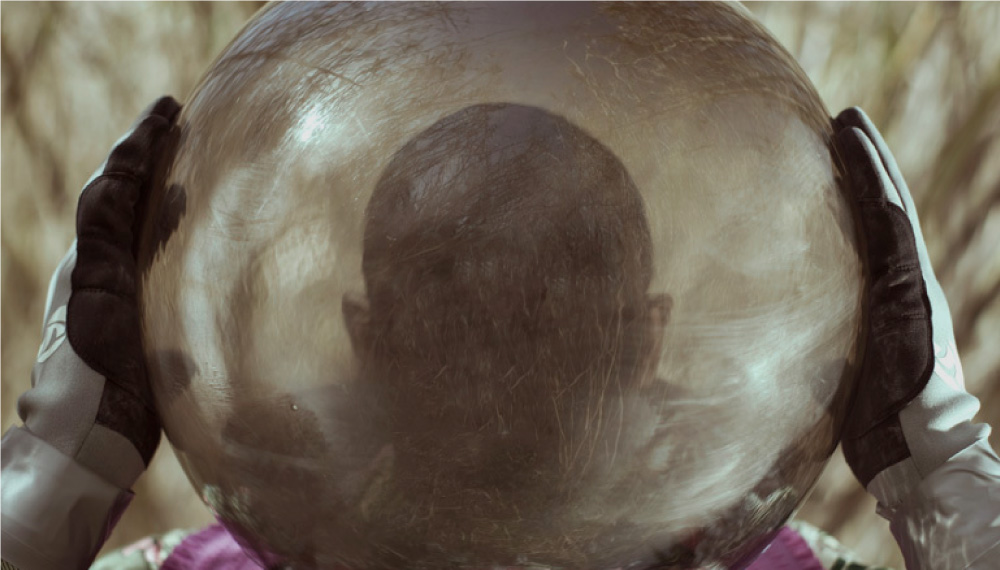Misc 002 | Intergalactic Collard Greens
This editorial was taken from PEOPLE OF COLO(U)R DESTROY SCIENCE FICTION! by Lightspeed Magazine.
My science fiction education began with a simple realization — humans are white.
As a chubby, country black boy from a city in the south with a larger than average population of African-American people taking up physical, cultural, and social space, every part of my life was surrounded by and suffused with blackness. Every part, that is, except the pieces of my life reserved for the consumption of science fiction. My black friends and I engaged with space, with planetary jumps and starship crews and time travel and alien fauna, through the lens of white humans, white heroes, and white culture. Is it any wonder, then, that my fledgling science fiction tales were full of these same white humans? This is not a singular experience, either. Talk to any person of color who possessed a childhood interest in creating science fiction. Many of them will report doing the same, or similar.
Science fiction’s great self-declared distinction from fantasy is the presence of steadfast rules, usually governed by applications of hard science. Mainstream science fiction also seemed to possess a set of very scientific rules regarding what happened when one encountered blacks:
There were never more than three black people in any respective galaxy, except for random planets somehow chock-full of blacks who were unable to progress their culture past iron spears and loincloths.
Blacks were not allowed to interact with each other. Instead they were required to float alone and lonely through their respective spaces like lumbering chocolatey gas giants.
If someone absolutely had to die in order to move the plot forward or gird the loins of the hero, it would be someone who looked like the black consumer, or the black consumer’s sister, or the black consumer’s best friend, or the black consumer’s black next-door neighbor.
“My science fiction education began with a simple realization — humans are white.”
To paraphrase Richard Pryor, white folks didn’t seem to want no niggers in the future.
Perhaps this is why the future is so important to black people, and why it is so painful for us when we are excluded from most mainstream futures. Hundreds of years of subjugation, of overt and covert messages of disdain and unworthiness weigh on a soul. Black people have long been working toward stepping into a promised land where they could be treated fairly and equally—not as people without color, but as people who are considered human despite their skin.
We’ve long since learned that, in order to exist in myriad streams of time and space, we have to create our own lanes in order to show and prove that the stories of nonwhite humans matter. We’ve birthed works of science fiction that have imagined us in worlds where we would not be murdered simply for existing. We’ve considered the effects of spacetime on our bodies, and interwoven Africa into the cosmos. We’ve written, painted, and harmonically tattooed our bodies, our myriad identities amongst the stars. As always, we black creators have taken the dregs of what we’ve been given and created something of wonder from it.
Intergalactic collard greens, if you will.
When we’re talking about destroying science fiction, black people and other groups of people of color have been neck deep in the work. For centuries, we have dared to imagine, depict, and explore the reaches of space, time, and power on our own, with no approval or interaction from the powers that are. We’ve already lifted our voices, and our voices have been a mighty wave, powerful enough to show the universe that we are here, in the midst of science fiction—that we’ve been here, and that we aren’t going anywhere.
We’re just waiting on the rest of you to catch up.
ABOUT THE AUTHOR
Troy L. Wiggins is from Memphis, Tennessee. He was raised on a steady diet of comic books, fantasy fiction, and role-playing games. His short fiction and essays have appeared or are forthcoming in Griots: Sisters of the Spear, Long Hidden: Speculative Fiction from the Margins of History, The Mash-Up Americans, Literary Orphans, and Memphis Noir. He is a contributor at Book Riot and Panels, and he blogs about the intersection of speculative fiction, race, and nerd culture at Afrofantasy. Troy lives in Memphis with his wife and their expatriate.
You can find him on Twitter @TroyLWiggins.

